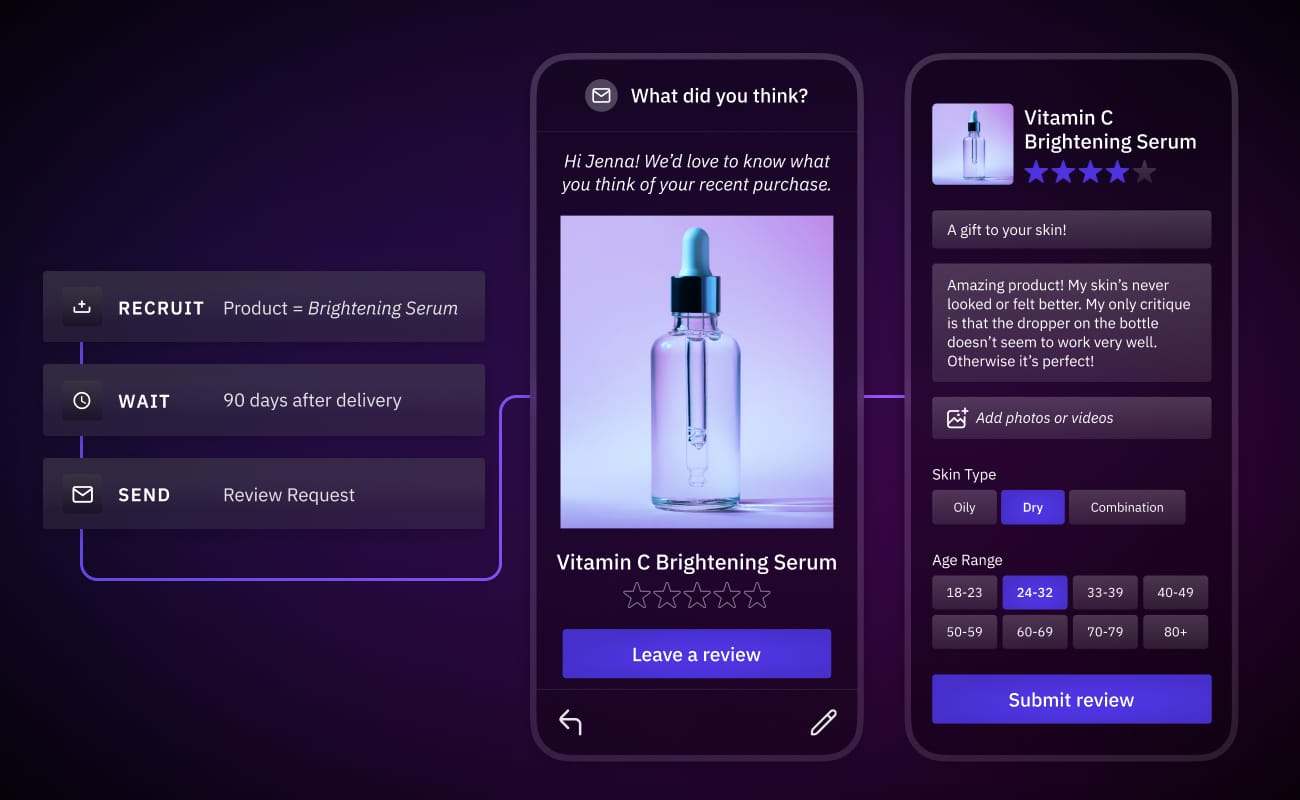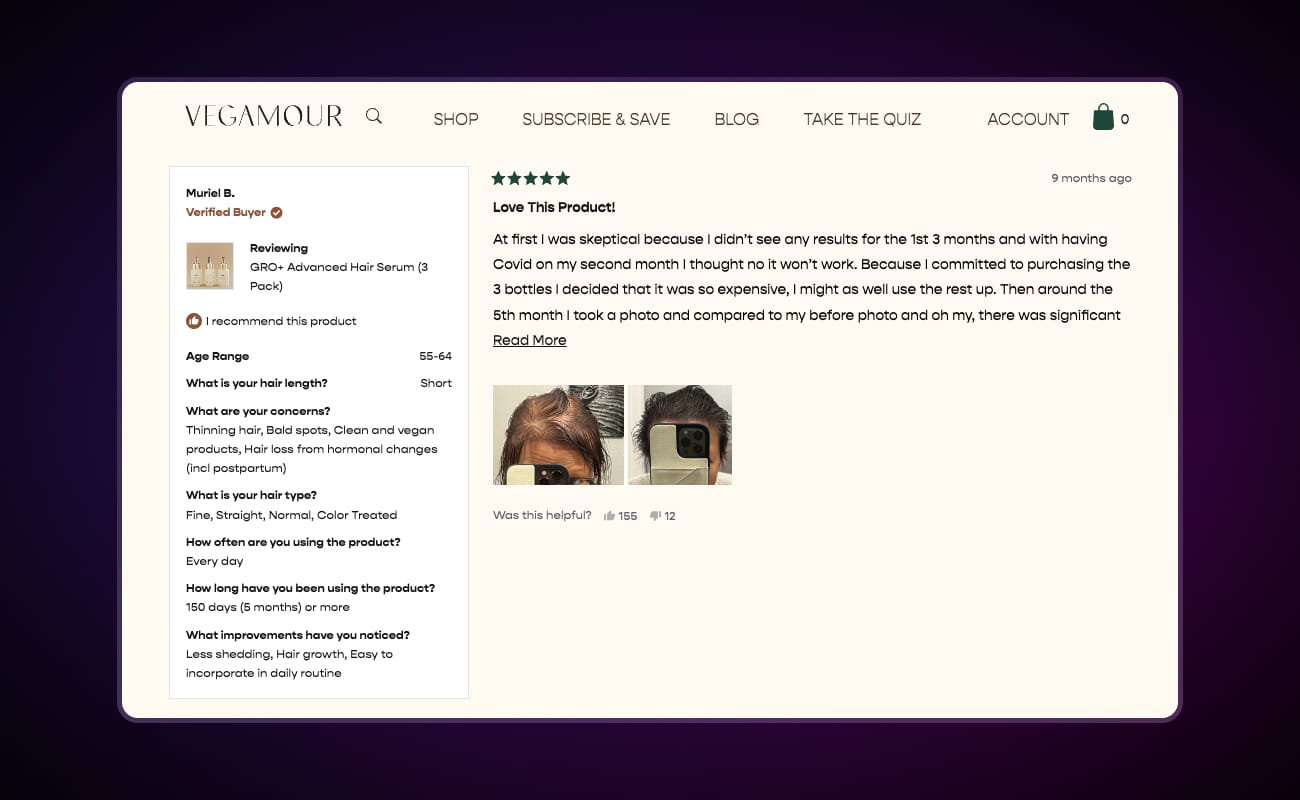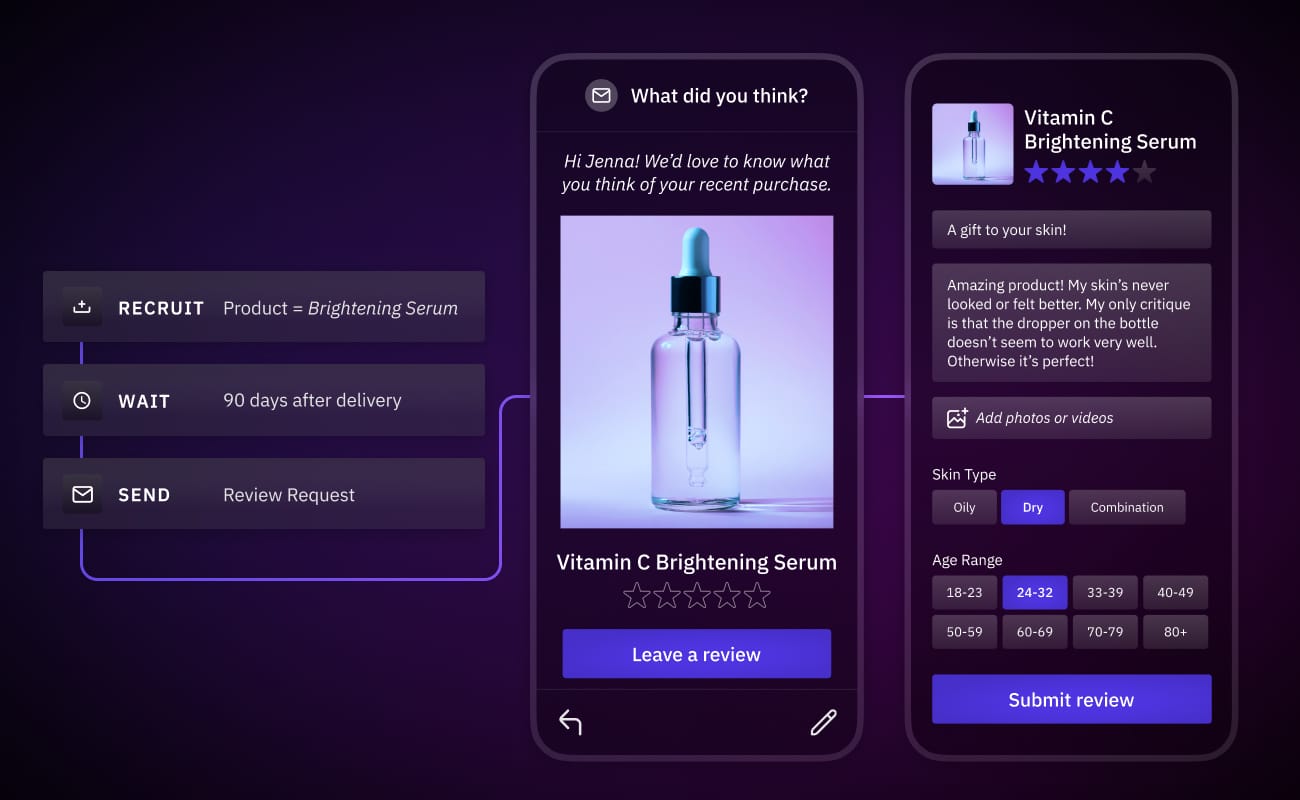The Importance of Capturing Timely Reviews After Successful Delivery

Reviews do more than share opinions — they tell personal stories that build trust, guide purchasing decisions, and foster long-term loyalty. They’re an essential tool for eCommerce brands looking to build relationships with customers and provide authentic social proof.
Encouraging customers to leave reviews is a highly effective way to engage with shoppers and nurture repeat buyers, all while organically showcasing your product’s value to future customers. But asking for reviews isn’t as simple as sending a follow-up email after a purchase.
If done poorly, a review request can create a negative experience for those who might have been a lifelong customer. Instead, by carefully timing your requests, using the right approach, and selecting the best platform, you can create a seamless experience that highlights your product’s quality while helping shoppers make better purchasing decisions.
Why Are Reviews Important?
Reviews are social capital that drives sales, affirms your brand’s worth, and helps build confidence in your offerings and trust in your brand that can bring new customers while building strong relationships with current ones. Here are the benefits of reviews:
Building Trust and Security
Recently, AfterShip teamed up with Ipsos (one of the most inclusive and extensive research firms in the world) to survey 1,000 American shoppers about their social media habits. According to the research over half of shoppers (52%) have made a purchase on social media. Social media is an easy and effective way for customers to describe their experiences, and positive reviews have been shown to help build confidence and establish trust between brands and their customers.
Helping Shoppers Make Informed Decisions
Knowledge is key, and detailed, high-quality reviews give customers the information they need. Reviews are useful to streamline the decision-making process. By reading reviews with specific customer and product details, future customers can come to your store better informed and more confident in utilizing your product.
Leveraging Zero-Party Data
Reviews can also be used as a tool to leverage zero-party data — information that a customer voluntarily shares with a brand. Zero-party data best helps you understand customer preferences, pain points, and possible methods to improve and personalize their experience. This data can also serve as information for new and existing product development.
How to Request Reviews at the Right Time
Reviews serve as social proof that drives loyalty and conversions. According to eCommerce trust research by Okendo, 95% of customers read reviews before making a purchase, so it is essential to find the best approach and best time to ask for eCommerce reviews from your customers to take advantage of this valuable strategy.
The Right Timing: When to Ask for Reviews
Timing is key to maximizing the value of any review request. When handled with proper intention, the timing of reviews creates a personalized customer experience that builds stronger relationships with your customers.
When to Send a Review Request?
There is no cure-all answer on the best time to request a review post-purchase. The nature of your product will greatly influence when you ask for a customer to speak about their experience.
Certain products take more time than others to showcase their value and benefit, and by asking for a review too soon in the customer journey process, you risk not giving the customer enough time to have anything to say about your product.
Knowing when and how to address customers is essential to the likelihood of getting a thoughtful response. The right timing of review requests also creates a personalized, positive customer experience.
Vegamour’s Review Request Strategy
One company that has mastered the art of timing review requests is Vegamour. This beauty brand takes a holistic approach to hair wellness, forgoing chemicals for clinically tested plant-based ingredients that work in tandem to naturally promote health and beautiful hair. Some of their products have results that manifest over time, which means that their full benefit might not be apparent immediately. These products include their gray hair products, which take three months for customers to notice results.

By waiting to request reviews until the product has had a chance to demonstrate its effectiveness, Vegamour saw an over 270% increase in conversions, with 21% of their revenue influenced by Okendo.
Use the Right Reviews Platform to Optimize Timing
While every interaction with a customer is unique, using the right review platform can help ensure that review requests are sent optimally, letting the consumer see results before asking for a review.
This process can be automated, but it’s essential to ensure this doesn’t result in attempting to capture reviews before they have successfully received the product. Customizable timing and automated scheduling centered around the confirmation of a successful delivery help encourage reviews while a customer is most engaged.

You can also schedule follow-up reminders for when a satisfied customer hasn’t responded to the initial outreach. However, excessive review requests should be avoided. It’s best to follow up once with a reminder for the customer to leave a review.
With the right review platform, like Okendo Reviews, you can ensure that your review requests are timely and effective. This increases the chance that your successful delivery will be celebrated by positive customer feedback that helps establish your value and increases consumer confidence in your brand.
Conclusion
Reviews are one of the most powerful tools for building trust, enhancing customer experience, and driving sales. By properly timing your review requests, you can improve your capacity to generate high-quality reviews and gather meaningful customer feedback. Whether you’re selling a quick-use product or something that takes months to show results, the key is to ask for reviews when customers have had enough time to evaluate the product, but not so late that they lose interest.

